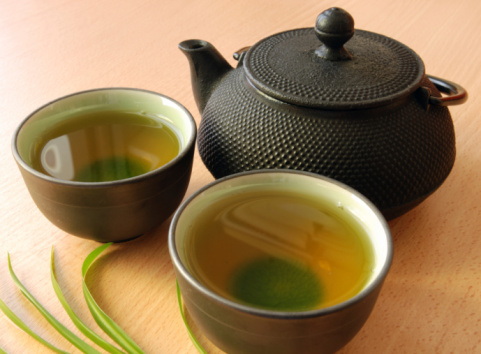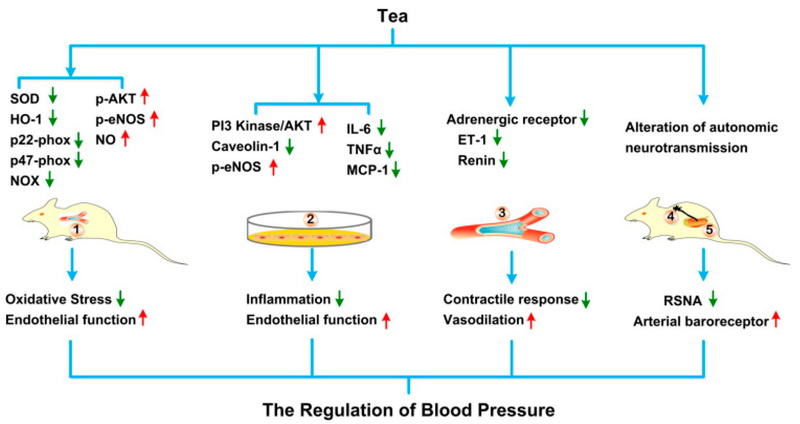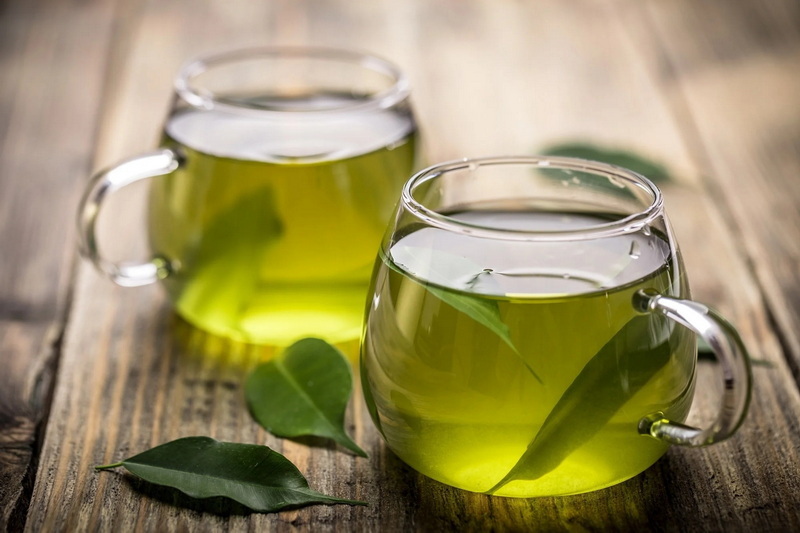Content Menu
● Understanding High Blood Pressure
● What is Green Tea Extract?
● Benefits of Green Tea Extract for Blood Pressure
● How Much Green Tea Extract Should You Take?
● Potential Risks and Considerations
● Scientific Evidence Supporting Green Tea Extract
● How to Incorporate Green Tea Extract into Your Diet
● Conclusion
● FAQ
>> 1. Can I drink green tea if I have high blood pressure?
>> 2. How much green tea should I drink daily?
>> 3. Does caffeine in green tea raise blood pressure?
>> 4. Are there any side effects from taking green tea extract?
>> 5. Can green tea replace my hypertension medication?
● Citations:
High blood pressure, or hypertension, is a common health condition that affects millions of people worldwide. As individuals seek natural remedies to manage their blood pressure, green tea extract has gained popularity due to its purported health benefits. This article explores the relationship between green tea extract and high blood pressure, examining the scientific evidence, potential benefits, and considerations for those with hypertension.

Understanding High Blood Pressure
High blood pressure occurs when the force of blood against the artery walls is consistently too high. This condition can lead to serious health issues, including heart disease, stroke, and kidney problems.
- Normal Blood Pressure: Below 120/80 mmHg
- Elevated Blood Pressure: 120-129/<80 mmHg
- Hypertension Stage 1: 130-139/80-89 mmHg
- Hypertension Stage 2: 140 or higher/90 or higher mmHg
Managing blood pressure often involves lifestyle changes such as diet, exercise, and sometimes medication.
What is Green Tea Extract?
Green tea extract is derived from the leaves of the *Camellia sinensis* plant and is rich in polyphenols, particularly catechins like epigallocatechin gallate (EGCG). These compounds are known for their antioxidant properties and potential health benefits.
Benefits of Green Tea Extract for Blood Pressure
Research suggests that green tea extract may have a positive impact on blood pressure levels:
- Reduction in Systolic and Diastolic Blood Pressure: A meta-analysis of various studies found that green tea consumption significantly lowered both systolic and diastolic blood pressure. The average reduction was approximately 1.17 mmHg for systolic and 1.24 mmHg for diastolic pressure[1][5].
- Mechanism of Action: The beneficial effects of green tea on blood pressure are attributed to its ability to improve endothelial function, reduce oxidative stress, and inhibit inflammation. These factors contribute to better vascular health and may help in regulating blood pressure levels[1][2].
- Epidemiological Studies: Observational studies have linked regular green tea consumption with a lower risk of developing hypertension. For instance, individuals who consume three to four cups of green tea daily have been shown to have a reduced risk of cardiovascular diseases[6][7].
How Much Green Tea Extract Should You Take?
While moderate consumption of green tea is generally considered safe, the amount of green tea extract varies based on individual health conditions and dietary needs.
- Recommended Dosage: Most studies suggest that a daily intake of around 200 mg of EGCG (equivalent to about 5-6 cups of green tea) may provide health benefits without significant side effects[1][8].
- Caution with Supplements: High doses of green tea extract supplements can lead to adverse effects, including increased heart rate and elevated blood pressure in sensitive individuals. Therefore, it's essential to consult with a healthcare provider before starting any supplement regimen.

Potential Risks and Considerations
Despite its benefits, there are important considerations for individuals with high blood pressure:
- Caffeine Content: Green tea contains caffeine, which can temporarily increase blood pressure in some individuals. Those sensitive to caffeine or taking medications that affect blood pressure should monitor their intake carefully[6][9].
- Interactions with Medications: Green tea extract may interact with certain medications used to treat hypertension or other conditions. It's crucial to discuss any potential interactions with a healthcare professional before adding green tea extract to your routine[7][8].
- Individual Variability: The response to green tea can vary significantly among individuals. Factors such as genetics, overall diet, and lifestyle can influence how one's body reacts to green tea consumption[9].
Scientific Evidence Supporting Green Tea Extract
Numerous studies have investigated the effects of green tea on blood pressure:
1. Clinical Trials: A systematic review included 20 randomized controlled trials (RCTs) involving over 1,500 participants. The results indicated that daily consumption of green tea led to significant reductions in both systolic and diastolic blood pressure[1][10].
2. Long-term Effects: While short-term studies show promising results in lowering blood pressure, more research is needed to assess the long-term effects of regular green tea consumption on hypertension management[5][9].
3. Population Studies: Large cohort studies have demonstrated that individuals who regularly consume green tea have a lower incidence of cardiovascular diseases compared to those who do not drink it[7][8].
4. Mechanisms at Play: The catechins in green tea may enhance nitric oxide production in the body, which helps relax blood vessels and improve circulation. This mechanism could explain the observed reductions in blood pressure among regular consumers[6][10].
How to Incorporate Green Tea Extract into Your Diet
Incorporating green tea extract into your diet can be straightforward:
- Beverages: Drinking brewed green tea is one of the most common methods. Aim for at least 3-6 cups daily for potential benefits.
- Supplements: If you prefer supplements, choose high-quality products that specify their catechin content. Follow the recommended dosage on the label or consult your healthcare provider.
- Culinary Uses: Green tea powder (matcha) can be added to smoothies, baked goods, or even savory dishes for an antioxidant boost.
Conclusion
Green tea extract may offer several benefits for individuals with high blood pressure, primarily through its antioxidant properties and ability to improve vascular health. However, it is essential to approach its use cautiously, especially regarding dosage and potential interactions with medications. Consulting a healthcare provider before incorporating green tea extract into your regimen is advisable.

FAQ
1. Can I drink green tea if I have high blood pressure?
Yes, moderate consumption of green tea is generally safe for those with high blood pressure. However, it's important to monitor your response and consult a healthcare provider.
2. How much green tea should I drink daily?
Most studies suggest consuming about 5-6 cups of green tea per day or an equivalent amount of EGCG (around 200 mg) for potential health benefits.
3. Does caffeine in green tea raise blood pressure?
Caffeine can temporarily increase blood pressure in some individuals; therefore, those sensitive to caffeine should monitor their intake.
4. Are there any side effects from taking green tea extract?
High doses of green tea extract can lead to side effects such as increased heart rate or elevated blood pressure in sensitive individuals.
5. Can green tea replace my hypertension medication?
Green tea should not be considered a substitute for prescribed medication for hypertension. Always consult your healthcare provider regarding treatment options.
Citations:
[1] https://www.cebm.ox.ac.uk/research/projects/green-tea-and-blood-pressure-effects
[2] https://www.healthline.com/nutrition/10-benefits-of-green-tea-extract
[3] https://pubmed.ncbi.nlm.nih.gov/36689359/
[4] https://pubmed.ncbi.nlm.nih.gov/19056646/
[5] https://www.nature.com/articles/srep06251
[6] https://health.clevelandclinic.org/green-tea-extract-a-better-way-to-boost-energy-or-not
[7] https://www.frontiersin.org/journals/nutrition/articles/10.3389/fnut.2022.1084455/full
[8] https://www.drugs.com/npp/green-tea.html
[9] https://journals.lww.com/md-journal/fulltext/2020/02070/effect_of_green_tea_supplementation_on_blood.36.aspx
[10] https://pmc.ncbi.nlm.nih.gov/articles/PMC7015560/






























